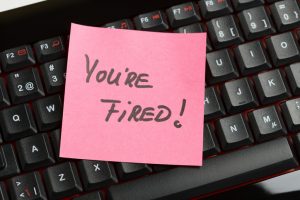
(Image
via
Getty)
Every
so
often,
I
get
asked
by
a
representative
of
one
investment
firm
or
another
to
give
an
overview
of
the
patent
litigation
ecosystem.
Lately,
I
have
taken
to
describing
to
such
audiences
how
patent
litigation
in
the
U.S.
market
has
come
to
resemble
a
slice
of
pizza,
albeit
a
slice
where
the
sauce
is
both
thinly
spread
and
tastes
a
little
weak.
The
dough
and
crust
holding
up
the
slice?
More
than
ever,
that
is
volume
nuisance-value
cases
brought
by
prolific
NPEs.
That
delicious
buffalo
mozzarella
imported
from
Italy?
Those
are
the
high-value
pharma
cases,
the
occasional
competitor
cases,
or
the
rare
funded
NPE
case
that
makes
it
through
the
gauntlet
that
is
the
litigation
funding
diligence
process.
And
the
less-than-robust
layer
of
sauce?
Those
are
the
smaller
competitor
cases,
or
the
non-nuisance
value
NPE
disputes.
If
you
squint
you
can
see
them,
but
they
are
increasingly
harder
to
come
by
in
modern
patent
litigation.
For
a
variety
of
reasons,
led
by
the
fact
that
such
cases
just
don’t
meet
the
damages
threshold
to
justify
funding,
while
also
being
too
risky
to
self-fund
in
this
age
of
IPR
challenges
and
defendants
emboldened
to
stretch
cases
to
the
breaking
point
before
settling.
You
may
not
agree
that
the
pizza
slice
analogy
works.
But
I
think
the
above
remains
a
pretty
comprehensive
and
accurate
picture
of
what
the
state
of
play
is
in
the
modern
patent
litigation
realm.
In
a
welcome
twist,
however,
at
least
one
nonpracticing
entity
has
generated
success
by
coming
at
the
challenge
of
generating
licensing
revenue
in
a
different
way.
I
am
speaking
about
IP
Value,
which
made
news
in
August
for
taking
on
a
large
(approximately
5,000)
patent
portfolio
from
Intel.
That
acquisition,
which
included
Intel
patents
in
a
variety
of
technology
areas,
continues
IP
Value’s
long-running
history
of
major
patent
acquisitions
from
pedigreed
operating
companies.
According
to
the
company,
IP
Value
owns
and
manages
licensing
for
over
12,000
patents.
A
sizable
portfolio,
by
any
reckoning.
(For
disclosure
purposes,
I
have
introduced
clients
to
IP
Value
in
the
past.
I
also
had
a
welcome
conversation
with
IP
Value’s
Executive
VP,
Partnerships
and
Acquisitions,
Keith
Wilson,
in
advance
of
this
column,
as
well
as
the
opportunity
to
review
some
prepared
background
material
provided
by
the
company.)
Indeed,
IP
Value’s
approach
in
many
ways
mirrors
the
licensing
approaches
of
the
most
successful
IP
owners,
from
Microsoft
to
Qualcomm
and
others
—
namely,
to
combine
deep
technical
expertise
with
a
large
and
varied
pool
of
patents
available
for
licensing.
That
is,
of
course,
by
design,
helped
along
by
IP
Value’s
healthy
financial
performance.
As
the
Intel
transaction
demonstrates,
operating
companies
with
large
patent
portfolios
who
are
interested
in
licensing
—
but
perhaps
not
interested
in
running
an
active
licensing
operation
—
have
come
to
view
IP
Value
as
a
viable
contributor
to
their
licensing
efforts.
In
fact,
IP
Value’s
original
assignments
often
took
the
form
of
acting
as
a
licensing
agent
for
large
patent
owners,
as
opposed
to
acquisition
of
the
underlying
assets
as
in
the
Intel
transaction.
Either
way,
IP
Value’s
recipe
of
being
an
option
for
large
patent
owners
to
work
with
has
held
up.
Yes,
more
than
a
handful
of
operating
companies
worked
with
NPEs
of
various
sizes
in
order
to
add
some
punch
to
their
licensing
efforts.
But
standard
operating
company-NPE
transactions
tend
to
involve
much
fewer
patents
than
the
many
thousands
of
patents
Intel
just
transferred
to
IP
Value,
and
for
good
reason,
since
many
NPEs
are
most
interested
in
generating
licensing
revenue
using
the
litigation
cudgel
as
a
primary
mechanism
for
beating
leaves
off
the
alleged
infringer
money
tree.
And
there
are
only
so
many
patents
you
can
bring
to
bear
in
a
litigation,
even
if
your
strategy
involves
filing
multiple
cases.
Here
again,
IP
Value
goes
about
its
business
a
bit
differently.
Not
only
has
it
demonstrated
that
it
can
and
will
take
on
large
numbers
of
patents
in
a
single
transaction,
but
it
has
also
publicly
declared
its
preference
for
litigation
as
a
licensing
tactic
of
last
resort.
In
fact,
a
recent
IAM
piece
on
the
company
points
out
that
in
over
20
years
of
operation,
IP
Value’s
“entities
have
filed
just
32
litigation
actions
since
2008.”
(In
contrast,
there
are
some
NPEs
for
whom
32
litigation
filings
represent
an
active
month’s
work.)
For
sure,
IP
Value
has
gone
the
litigation
route
on
occasion,
if
only
because
there
is
often
no
other
alternative
when
faced
with
an
unwilling
potential
licensee.
But
so
have
the
other
major
patent
holders
it
models
itself
on,
who
sometimes
find
themselves
even
suing
customers
(e.g.,
Qualcomm
v.
Apple)
in
order
to
protect
their
licensing
revenue
stream.
For
companies
with
large
patent
portfolios,
it
is
easy
to
see
the
appeal
of
partnering
with
IP
Value,
particularly
where
there
is
an
interest
in
divesting
a
large
number
of
patents.
By
now,
the
company
has
shown
that
its
business
model
can
generate
licensing
revenue,
even
without
following
an
expensive
and
uncertain
litigation-first
approach.
More
importantly,
IP
Value’s
investment
in
building
out
its
in-house
technical
team
can
be
an
important
driver
in
terms
of
helping
to
unlock
the
full
potential
of
a
patent
portfolio.
So
too
is
IP
Value’s
ability
and
willingness
to
invest
heavily
in
third-party
technical
analysis
of
addressable
products
for
licensing.
It
can
be
difficult
at
times
for
in-house
IP
counsel
to
develop
a
deep
understanding
of
where
the
most
valuable
assets
may
reside
in
a
given
portfolio.
Offloading
those
patents
to
IP
Value,
which
will
be
very
motivated
to
identify
any
potential
bulwark
assets,
can
therefore
be
an
attractive
alternative
to
going
it
alone.
Moreover,
as
IP
Value’s
experience
in
working
with
potential
licensees
deepens,
the
potential
value
of
IP
Value’s
relationships
could
also
work
in
the
original
patent
owner’s
favor.
If
only
because
potential
licensees
often
have
a
negative
initial
reaction
when
asked
to
license
a
robust
patent
portfolio
for
meaningful
money
—
especially
when
that
approach
is
made
by
a
former
or
current
competitor.
Having
a
third
party
like
IP
Value
make
the
approach
could
soften
the
blow
and
lead
to
more
productive
conversations
early
on.
Ultimately,
it
is
important
for
all
IP
owners
and
their
lawyers
to
maintain
an
understanding
of
what
the
varying
licensing
approaches
are
in
the
marketplace.
While
not
everyone
can
become
a
Qualcomm,
or
even
an
IP
Value,
having
an
appreciation
for
the
fact
that
there
is
no
single
answer
to
the
challenging
question
of
how
to
generate
licensing
revenue
can
be
very
useful.
In
a
challenging
environment
for
patent
owners,
present
times
included,
being
able
to
learn
from
other
licensing
models
can
spur
creative
thinking
about
how
best
to
approach
an
existing
licensing
conundrum.
In
the
meantime,
we
can
expect
that
IP
Value
will
continue
to
look
for
opportunities
to
demonstrate
its
unique
approach
to
patent
value
creation.
Please
feel
free
to
send
comments
or
questions
to
me
at
gkroub@kskiplaw.com
or
via
Twitter:
@gkroub.
Any
topic
suggestions
or
thoughts
are
most
welcome.
Gaston
Kroub
lives
in
Brooklyn
and
is
a
founding
partner
of
Kroub,
Silbersher
&
Kolmykov
PLLC,
an
intellectual
property
litigation
boutique,
and Markman
Advisors
LLC,
a
leading
consultancy
on
patent
issues
for
the
investment
community.
Gaston’s
practice
focuses
on
intellectual
property
litigation
and
related
counseling,
with
a
strong
focus
on
patent
matters.
You
can
reach
him
at gkroub@kskiplaw.com or
follow
him
on
Twitter: @gkroub.



 Kathryn
Kathryn




 Chris
Chris



